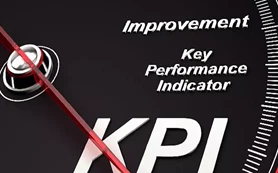
New CFO Checklist: What should your first 90 days looks like
Starting a role as a new Chief Financial Officer (CFO) can be a daunting task. With so many areas to consider, how do you make an impact within your first 90 days?
Read on to learn more about your first 3 months as a new CFO and download our new CFO 90 Day Checklist so you can keep track easily.
 5 minutes
5 minutes
Written by Steve Thomas, Finance Software and Systems Specialist

CFO Checklist: where to start in your first 90 days
When you first start your role as a new CFO, there are many elements to consider; getting up to speed with your new company’s culture, getting to know your team and key stakeholders, understanding your initial expectations and setting expectations with your team. Most importantly, you'll want to make an excellent first impression but also make an impact on the business as a whole within the first 90 days of taking office.
In their whitepaper, The Four Faces of the CFO, Deloitte describes four critical areas of focus for the CFO:
- Efficiency – managing the efficiency and effectiveness of the overall finance function
- Control – risk management, accounting and control, and financial reporting compliance
- Execution – partnering with other business executives to implement business strategies
- Performance – using a financial perspective to set the strategic direction of the business
The author and businessman Stephen R. Covey, in The 7 Habits of Highly Effective People, states, “Begin with the end in mind.” where he discusses starting as you mean to go on, defining your ideal end state and mapping a path to where you want to be.
Consider what type of organisation you want to lead, what would you like to see and where you want to be in 90 days and beyond. Define your end goals, and then map a path to get there.
So, where do you start as a new CFO, and what do you prioritise to make the maximum impact in your new role within the first 90 days?
Audit your processes
The first step to becoming strategic in your approach to the CFO role and the finance function is understanding the maturity and performance of the finance processes.
These processes include, but are not limited to:
- Data collection
- Budgeting
- Planning - strategic planning, P&L and balance sheet planning, HR planning, capital planning, project planning, production and capacity planning, sales and operational planning
- Forecasting - long-range forecasting, rolling forecasts, cash flow forecasting
- Financial Modelling
- Financial close
- Consolidation
- Financial Reporting - management, statutory, and disclosure reports.
Establish the baseline of where your processes currently exist regarding maturity and performance. You will then have a body of information that will give you a greater insight into the performance of your business and how the finance department interoperates with the other business functions.
You will also be able to have informed conversations with your team and stakeholders about the business instead of using guesswork and speculation.
Visit our Strategic CFO Resources Hub for more information on succeeding as a strategic CFO, what’s holding finance professionals back – and what you can do about it.
Get to know your team
Within the first two weeks of starting your new role, set up one-to-one meetings with your new team, including direct reports, key internal stakeholders, other heads of functions in your business, and all peers.
Use your one-to-one meetings as an opportunity to get to know your team as individuals, their concerns and what they’d like to change in the business, in addition to assessing any issues that may exist currently. Also, find out what’s working well and what can be improved, along with any suggestions your team and key stakeholders may have.
Once you have met with all your key internal stakeholders, set up meetings with your key external stakeholders within the next two weeks. Key external stakeholders will include major investors and investor organisations, your company’s audit and tax firms, and major suppliers and partners.
Listen to and note any concerns they may have that can be addressed within your 90-day plan or beyond.
Assess current performance
When you take on your new CFO role, one of the most important aspects will be understanding the business’s current financial performance. An assessment of the recent financial performance will give you a clearer picture of the business’s overall health of the business, enabling you to identify and prioritise some of the actions you may need to take in your first 90 days.
To do this, you will need these five documents from the most recent financial quarter and previous quarters for comparison:
- Balance Sheet
- Income Statement
- Cash Flow Statement
- General Ledger
- Profit and Loss Statement
There are ten key metrics from these documents that you will need for your financial performance analysis.
These metrics will provide you with valuable insights for potentially hiring new team members, assessing vendor relationships and expense management, and providing you with an overall assessment of the business’s financial health.
- Gross profit margin – a measure of profitability which is helpful for executives and shareholders
- Net profit margin – taking all costs into consideration
- Working capital – a measure of liquidity showing how much capital the company has to work with
- Current ratio – determines whether the business can pay its short-term obligations due within a year
- Quick ratio – determines the business’s ability to pay short-term bills
- Debt to equity ratio – shows the company’s ability to use shareholder equity to cover debt in the event of a closure or business downturn
- Leverage – measures the amount of debt used to buy assets
- Return on equity – the company's performance in generating returns on shareholder investments
- Return on assets – the company's profitability in relation to its total assets
- Operating cash flow - indicates whether the company can produce sufficient cash flow to cover current expenses and pay debts.
Discover the other elements you need to become a successful CFO
Prioritise your actions
According to a survey by AccountingWEB, only 2.2% of finance leaders consider themselves to be working on strategic tasks.
Therefore it’s essential to prioritise the actions that you will be working on over the 90 days to focus on those tasks that will directly contribute to the strategic direction of the company and the finance operation.
At this stage, you will have spent the first 30 days auditing your processes, meeting your stakeholders and assessing your company’s current financial performance.
You will have a long list of actions, issues, notes and points to address by this time. So how do you prioritise these so that you are working on the right things at the right time?
A useful tool is the Eisenhower Matrix, developed by Dwight D. Eisenhower, the 34th President of the United States.
In his address to the Second Assembly of the World Council of Churches, Evanston, Illinois on 19 August 1954, Eisenhower said - "I have two kinds of problems, the urgent and the important. The urgent are not important, and the important are never urgent."
He had a military background and had to make difficult daily decisions, which led to the Eisenhower principle of prioritising tasks by urgency and importance.
Take all your items from your list of actions, issues and notes, and categorise them in the quadrant below. This will give you the priorities for each task and enable you to schedule them on your 90-day plan.
Do First = Identify the urgent actions and tasks to be scheduled first on your plan.
Schedule = Identify the important actions and tasks that can be done after the urgent tasks. Schedule these on your plan next.
Delegate = Identify the important actions and tasks that can be done after the urgent tasks. Schedule these on your plan next.
Don't do = Park neither urgent nor important items for the moment. You might want to revisit these after your first 90 days.
(Eisenhower Matrix)
Park neither urgent nor important items for the moment. You might want to revisit these after your first 90 days. Park neither urgent nor important items for the moment. You might want to revisit these after your first 90 days.
Download the new CFO 90 day checklist to keep in your back pocket
How finance software can support you as a CFO
Finance software can support you in your first 90 days as a CFO by enabling full visibility of your finance processes. It can provide you with your finance, project, sales, HR, credit and third-party data in one single view to assess your processes and make better-informed decisions.
Our finance software joins all your systems, data and people in one place - helping improve productivity and visibility across your organisation. Making it easy for people across your organisation to assess processes and financial performance, input financial data, action approvals and view relevant reports - on any device, at any time.
As you implement your actions and enhance your processes over the next 90 days, you can assemble your bespoke system by adding on apps as you grow.
Find out more about how our finance software can help you assess your financial processes and performance and support you in your first 90 days as a new CFO and beyond.
Download our Strategic CFO whitepaper for additional insights into the issues holding CFOs back and the direction you need to take to evolve and become more strategic.
How to succeed as a Strategic CFO
Adopting a strategic approach may seem daunting, pick up some tips on what strategic should look like and how you can take your business to the next level.

7 essential skills for a CFO
Have a read through the 7 essential skills for a CFO to make a positive and lasting impact in your organisation.

How to become a successful CFO
Take a look at the common traits shared by successful CFOs and the key elements and skills that will add to CFO effectiveness.

How a CFO can use Business Intelligence
Read how successful CFOs use Business Intelligence to drive company strategy and support finance operations.
Tips to help you lead a finance team
The Strategic CFO needs to deliver strong financial performance, and for this needs a strong finance team to support and align on those goals.

Structuring your finance team: best practices to follow
Understand the considerations and best practices to make when structuring your finance team.

11 KPIs your finance team should monitor
What are KPIs, and why should your finance team track them? Explore the top 11 KPIs your finance team should track and why.

How To Build a Highly Effective Finance Team
Learn how to build a finance team that will support the business’s financial growth, strategy and performance.

How to become a Finance Director
Read the key skills required of a Finance Director and the steps you should take to get there.
How can technology support you as a Strategic CFO
For any organisation to be successful it’s important to be able to identify when it’s time to change your strategy and drive your business forward.

The key signs it's time to change your business strategy
Explore the 3 signs of a poor strategy and how a modern, data-fuelled approach can make a difference.

Key signs it's time to change your accounting system
This webinar discusses the impact of under investment in software, why companies decide to change accounting systems, and how to choose the right supplier

The data-driven future of finance and why CFO's need to embrace it
Take a look at the role and the importance of data to gain a better understanding of the financial health of the business.

Guide to CFO software
Look at the software tools which are of most use to the modern CFO, as well as the latest technology trends to look out for.
